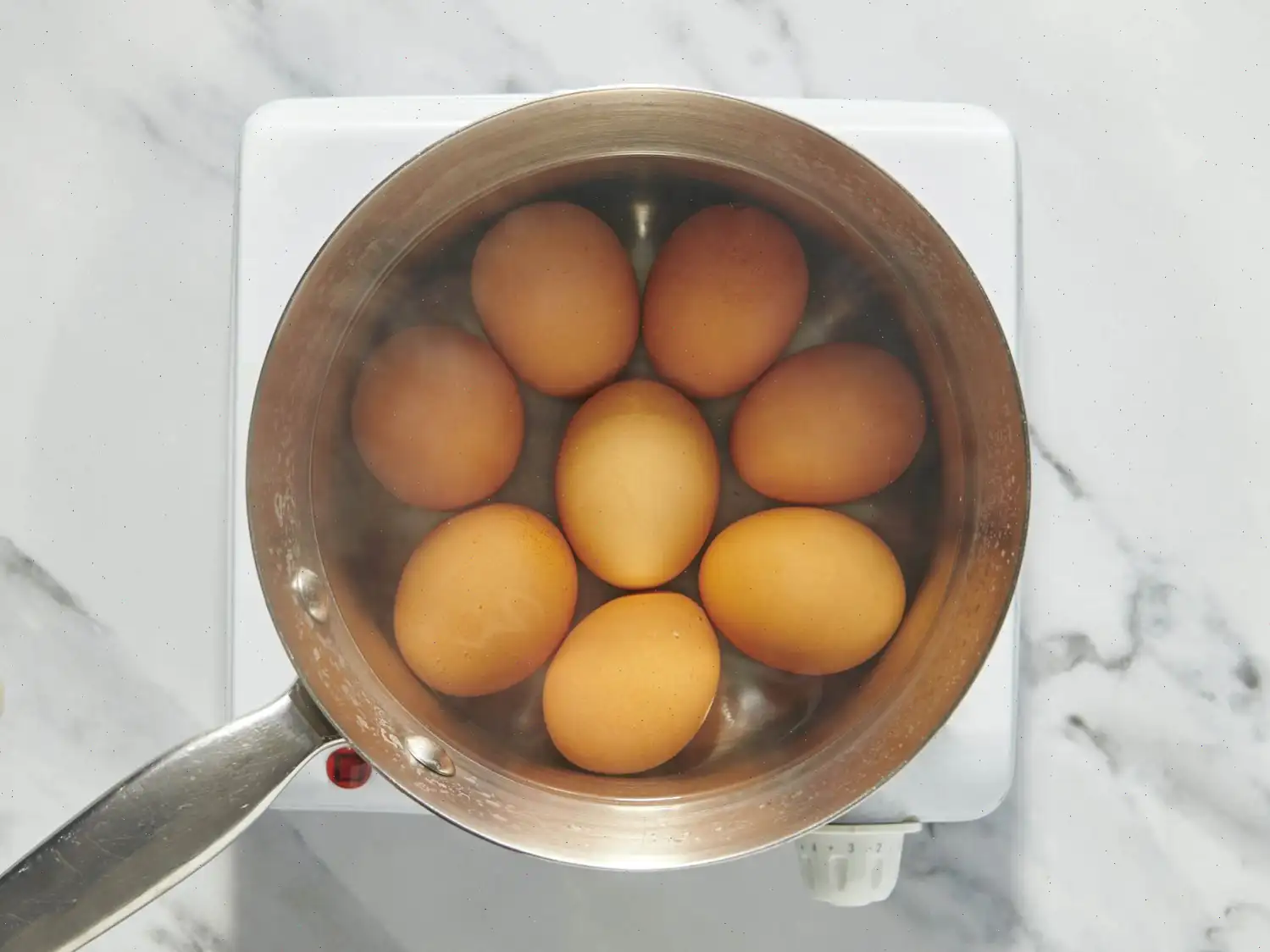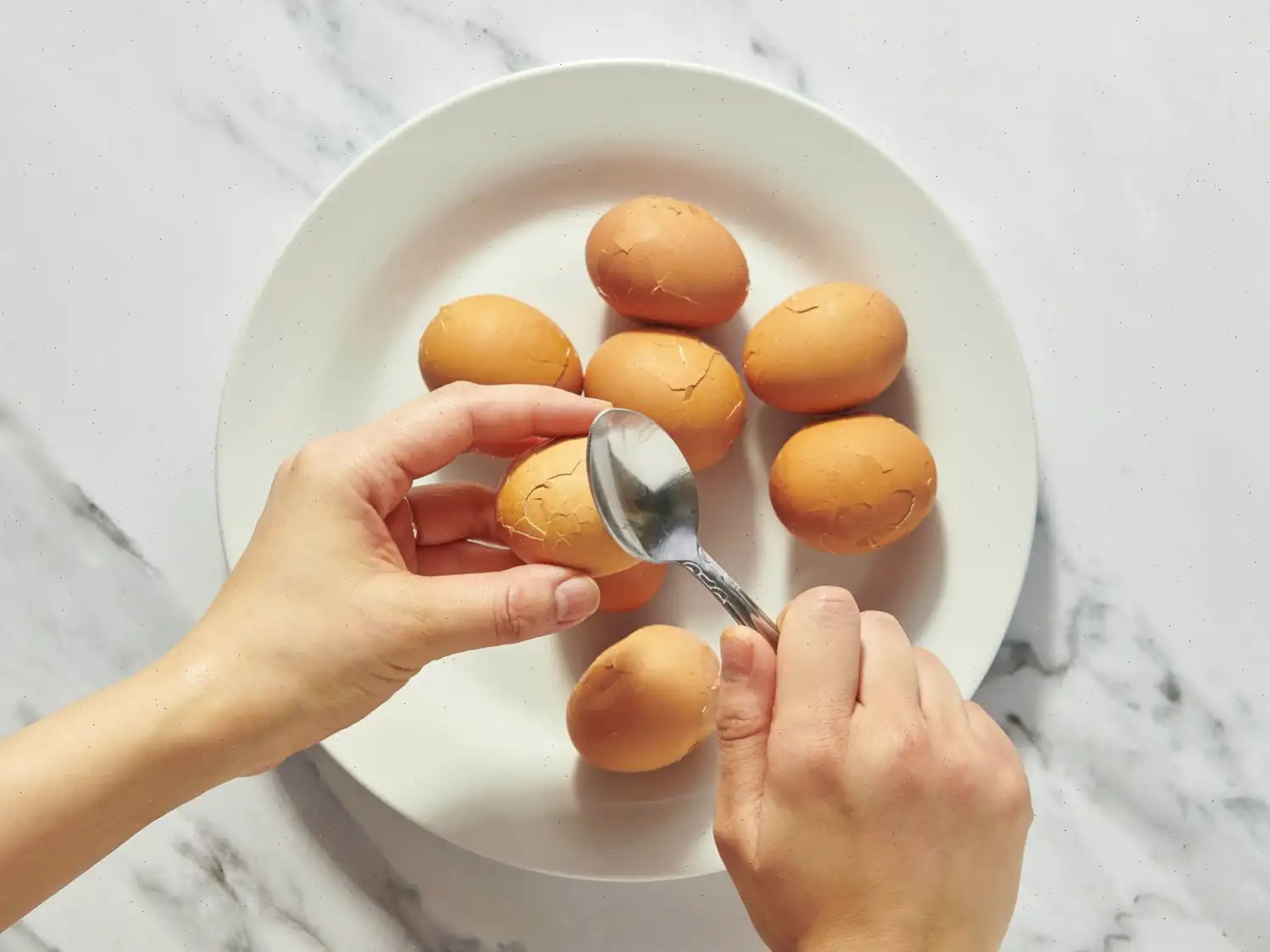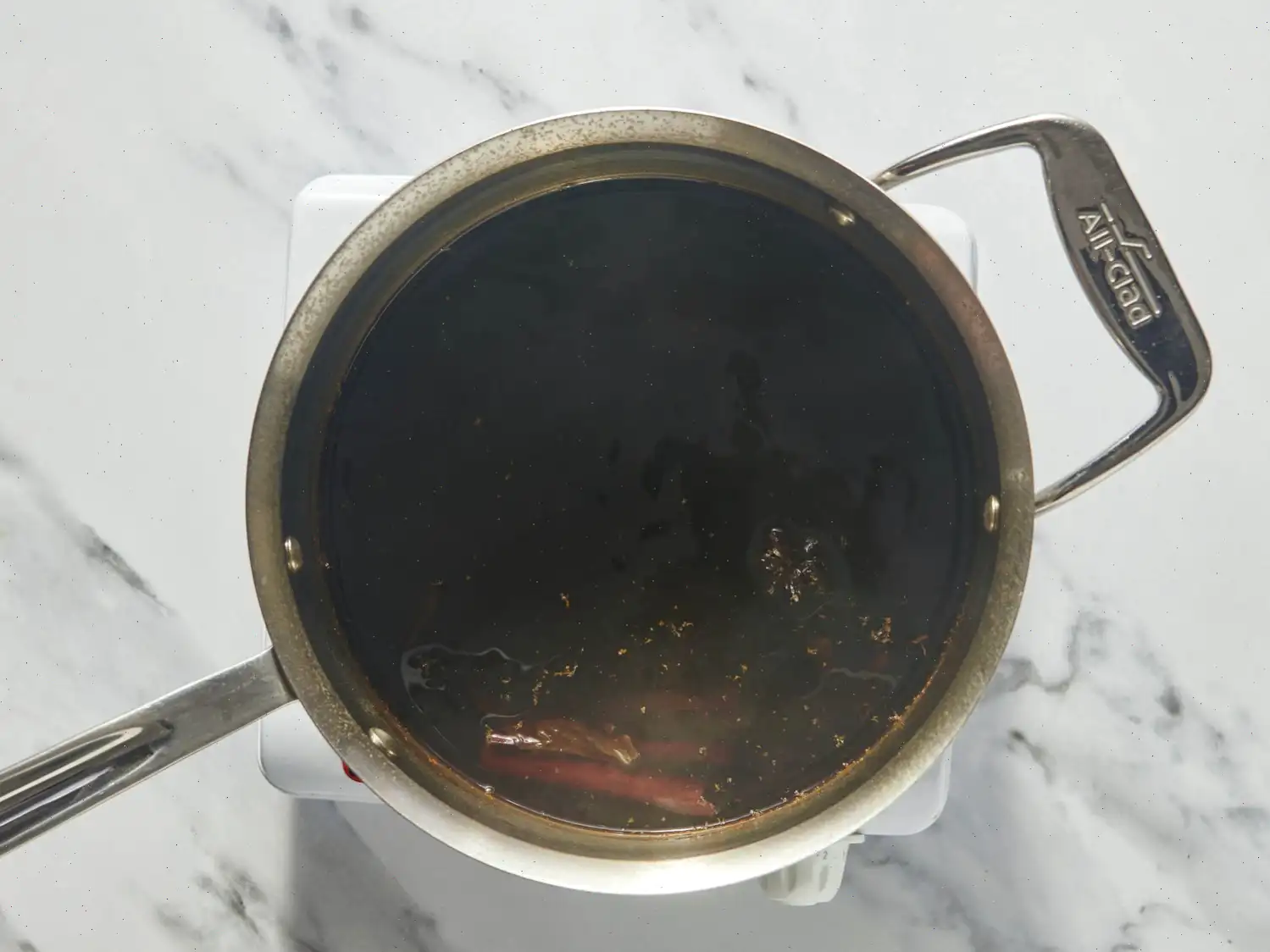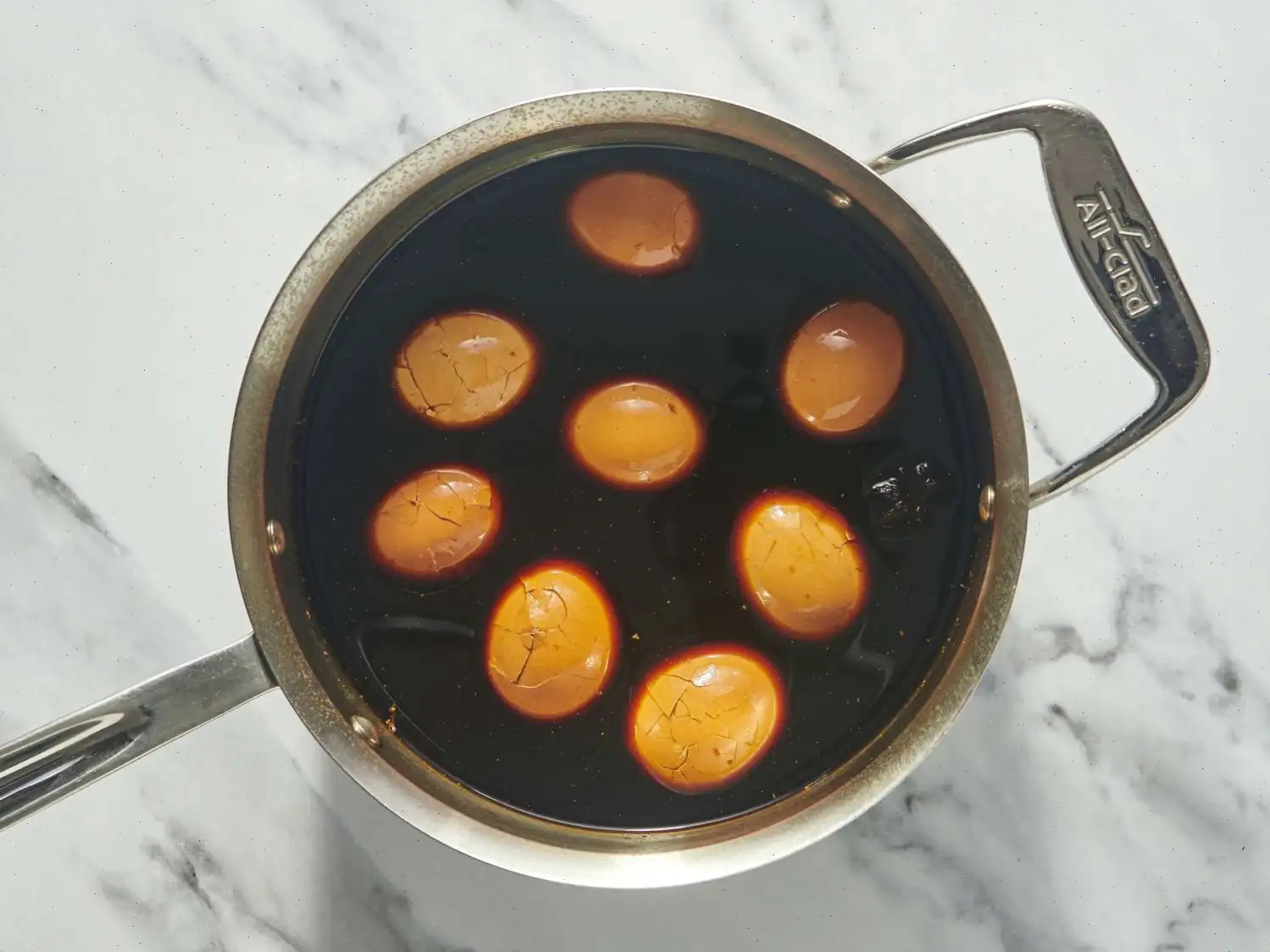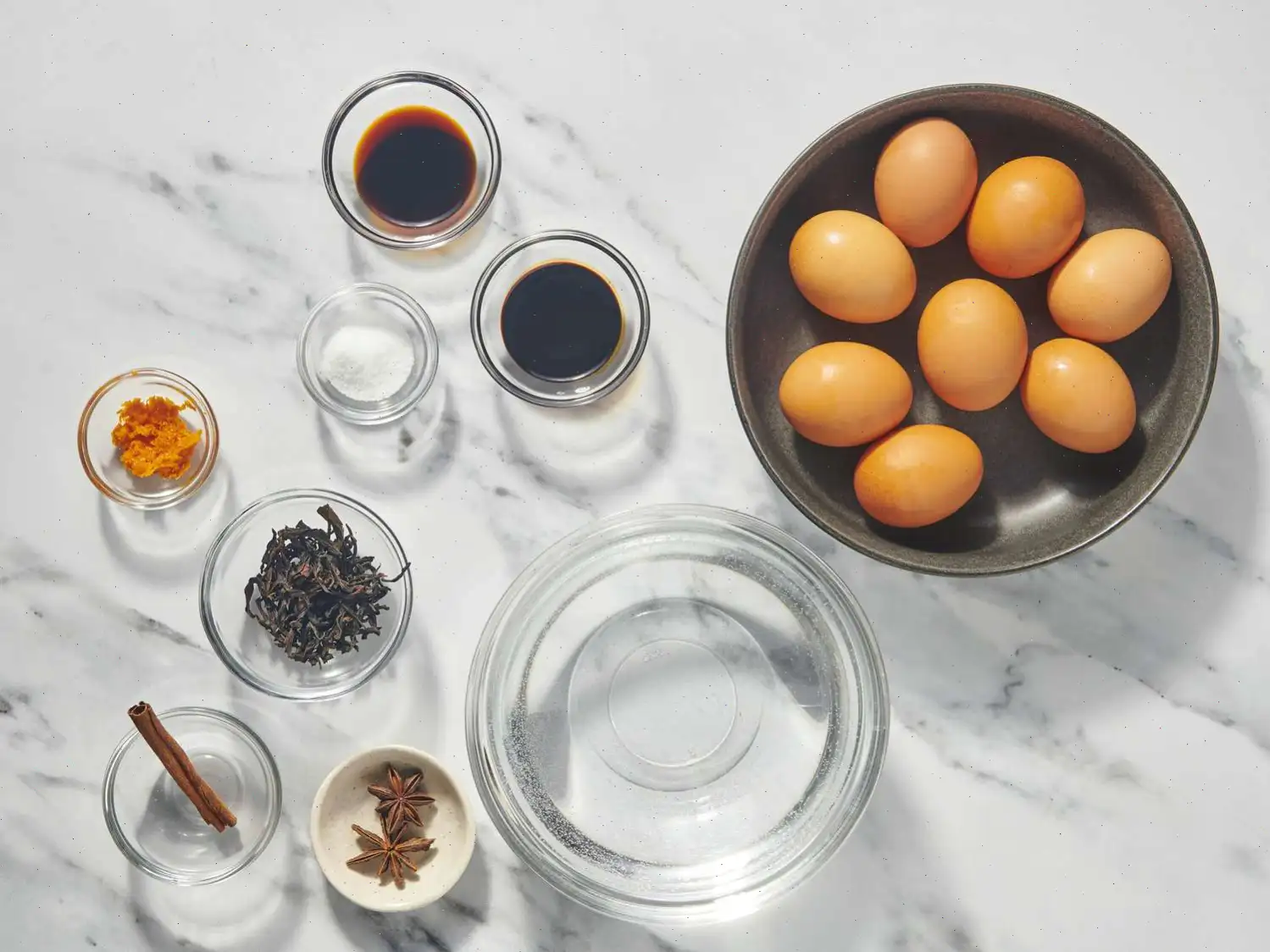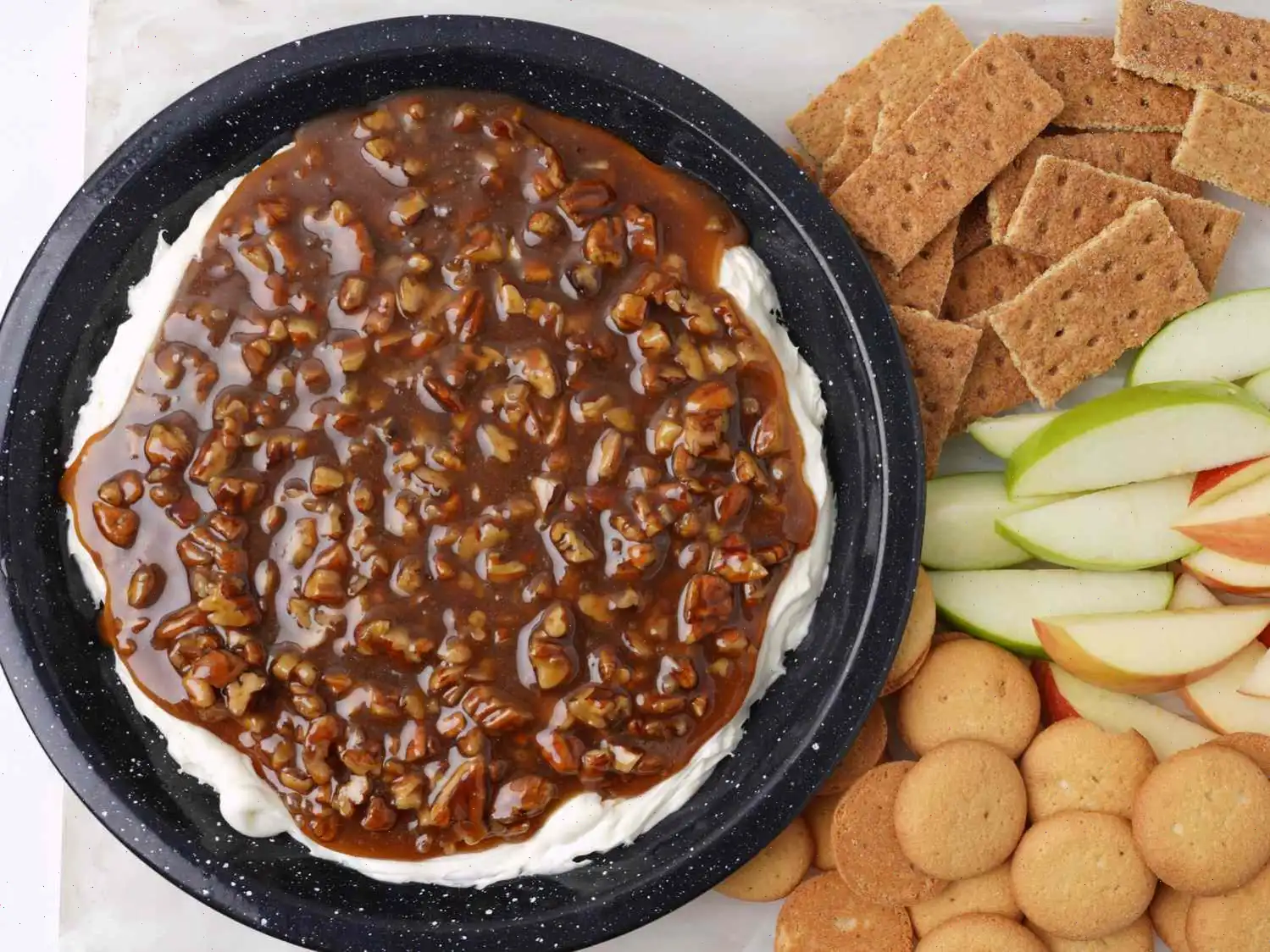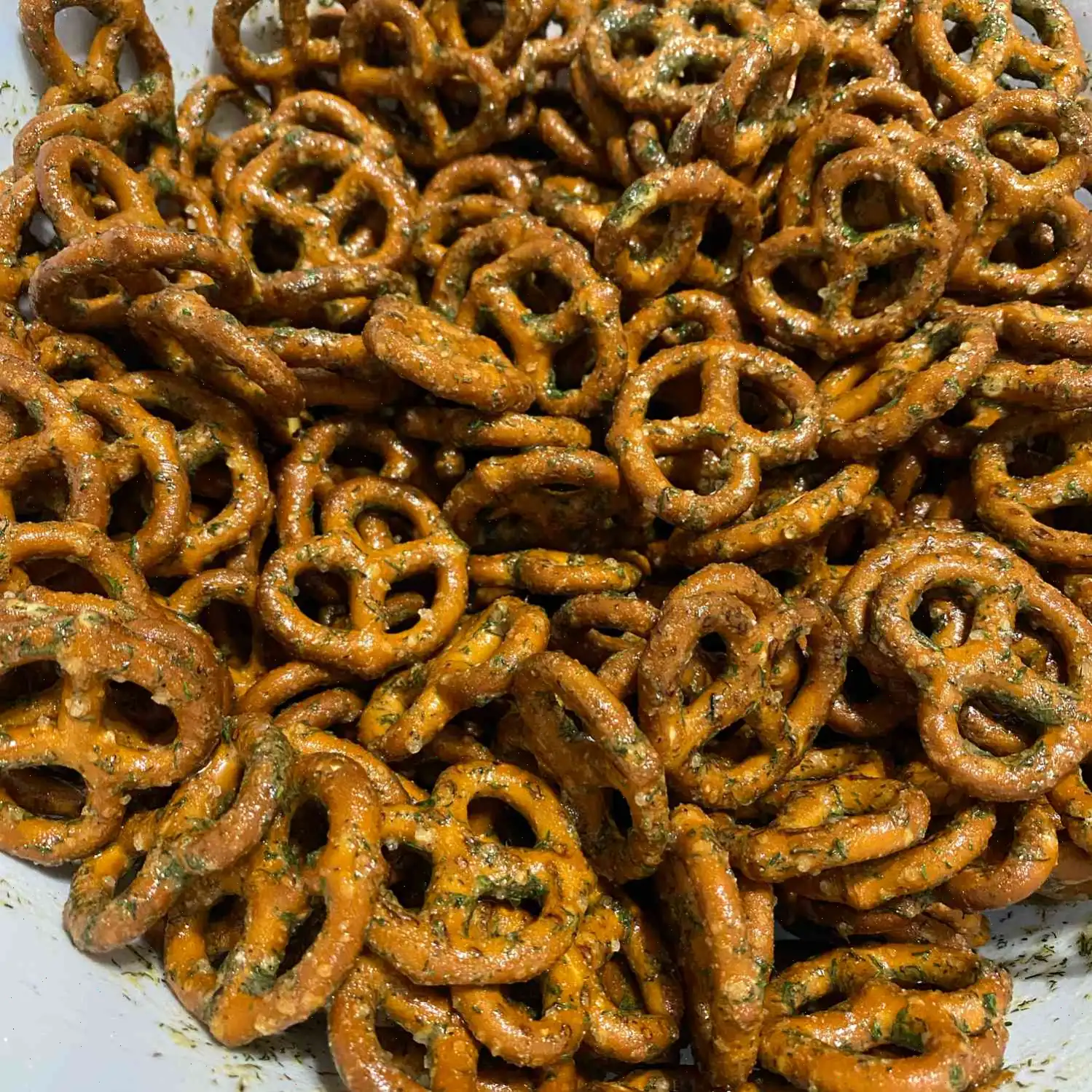
Chinese Tea Eggs Recipe
Ingredients
- 3 cups water
- 2 tablespoons black tea leaves
- 1 tablespoon soy sauce
- 1 tablespoon black soy sauce
- 1 tablespoon tangerine zest
- 1 (2-inch) piece cinnamon stick
- 2 pods star anise
- 1 teaspoons salt, divided
- 8 large eggs
Directions
- Gather all ingredients.
- In a large saucepan, combine 3 cups water, black tea leaves, soy sauce, black soy sauce, tangerine zest, cinnamon stick, star anise, and teaspoon of salt. Bring to a boil.
- Reduce the heat to low, cover, and simmer for 3 hours, allowing all the flavors to meld together.
- While the tea mixture is simmering, place the eggs in a medium pot. Add the remaining 1 teaspoon salt and cover the eggs with cold water.
- Bring the pot of water to a boil, then reduce the heat and simmer for 20 minutes to hard boil the eggs.
- Once the eggs are cooked, remove the pot from the heat, drain the water, and allow the eggs to cool.
- Once cooled, gently tap the eggs with the back of a spoon to crack the shells. Do not remove the shells at this point.
- After the tea mixture has simmered for 3 hours, remove the saucepan from the heat. Carefully add the cracked eggs to the mixture.
- Let the eggs steep in the mixture for at least 8 hours for a mild flavor. For a richer flavor, let them steep for up to 1 days.
Cook's Note
I enjoy these eggs chilled and quartered as a side dish, appetizer, or snack.
Store unpeeled eggs in a tightly sealed in the refrigerator for up to 4-5 days.
Nutrition Facts
Per Serving:
- Calories: 75
- Fat: 5g (6% DV)
- Saturated Fat: 2g (8% DV)
- Cholesterol: 186mg (62% DV)
- Sodium: 624mg (27% DV)
- Total Carbohydrate: 1g (0% DV)
- Dietary Fiber: 0g (1% DV)
- Total Sugars: 0g
- Protein: 7g (13% DV)
- Calcium: 35mg (3% DV)
- Iron: 1mg (5% DV)
- Potassium: 91mg (2% DV)
*Percent Daily Values are based on a 2,000-calorie diet. Your daily values may vary depending on your calorie needs.
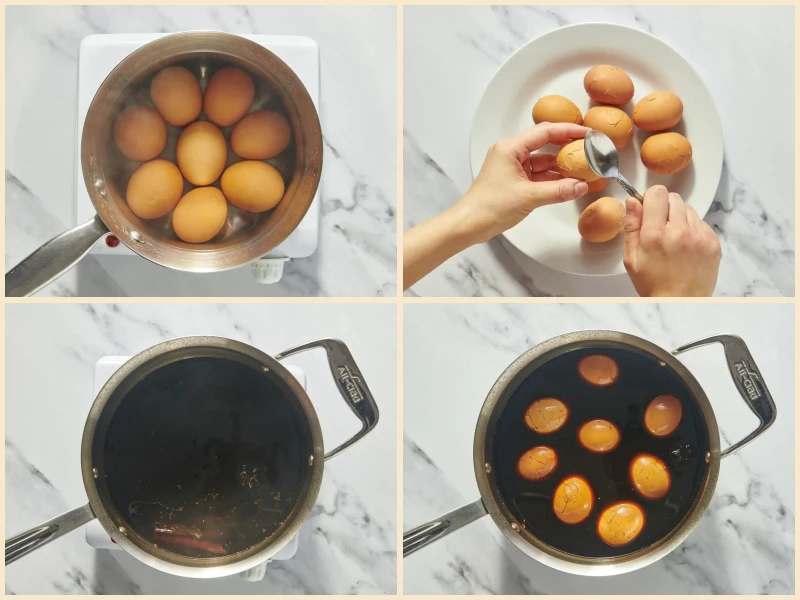
Chinese Tea Eggs are a popular and flavorful snack that has been a part of Chinese cuisine for centuries. These marbled eggs are steeped in a fragrant tea-infused mixture that imparts a savory, slightly sweet flavor to the eggs, making them a delightful treat. Below, we explore the history, regional variations, and unique characteristics of this dish, as well as interesting facts about its cultural significance.
History of Chinese Tea Eggs
The origin of Chinese Tea Eggs dates back to the Qing Dynasty (16441912), though their exact beginnings are unclear. The dish is said to have been discovered by Chinese street vendors who would sell these eggs as a quick and portable snack. Over time, the practice spread to different regions of China, each adding its own spin to the recipe. Today, tea eggs are commonly enjoyed as a snack, breakfast item, or as part of a traditional meal during holidays and festivals such as the Lunar New Year.
Regional Variations
Tea eggs can be found in various forms across China, with each region adding its unique flavors and ingredients. In northern China, for example, the eggs are typically steeped in a soy sauce-based broth with added spices like star anise and cinnamon. In contrast, in southern regions, the use of different teas, such as green tea or oolong, imparts a more delicate flavor. The eggs may also be flavored with the zest of citrus fruits like tangerine, which is a common variation found in the Guangdong province.
Distinct Characteristics
What sets Chinese Tea Eggs apart from similar dishes is the distinctive marbled effect on the eggs' shells. After boiling, the eggs are cracked lightly so that the broth seeps into the cracks, creating a beautiful pattern on the shell. The eggs are then left to steep in the seasoned tea broth for several hours or even overnight, allowing them to absorb the flavors fully. This marbling effect, coupled with the aromatic and slightly sweet tea-soaked taste, makes the eggs not only a feast for the taste buds but also for the eyes.
Where Are Chinese Tea Eggs Typically Served?
Chinese Tea Eggs are a street food staple in many Chinese cities, where they are often sold by vendors along with other quick bites. In addition to street vendors, these eggs can be found in Chinese restaurants, especially those specializing in dim sum or traditional snacks. Tea eggs are also commonly served at home during holidays, such as the Mid-Autumn Festival and Lunar New Year, symbolizing good luck and longevity. In rural areas, they may be made in large batches and stored to be eaten throughout the week as a hearty snack or light meal.
Interesting Facts About Chinese Tea Eggs
- Health Benefits: Tea eggs are often considered a nutritious snack due to the high protein content of the eggs and the antioxidants in the tea. The combination of the two creates a satisfying and energy-boosting bite.
- Symbolism: In Chinese culture, eggs symbolize fertility and rebirth, making tea eggs a popular dish during festive occasions where these qualities are celebrated.
- Cooking Time: The process of making Chinese Tea Eggs is relatively simple but requires patience. The eggs are simmered for several hours and left to marinate, allowing the flavors to deepen. The longer they steep, the more flavorful and aromatic they become.
- Global Popularity: While tea eggs are a traditional Chinese food, their popularity has spread worldwide, particularly in countries with significant Chinese communities. They are often enjoyed by people looking for new ways to prepare eggs or as a unique dish to share with friends and family.
Conclusion
Chinese Tea Eggs are not only a delicious and visually striking snack, but they also carry deep cultural significance and offer a glimpse into the rich culinary traditions of China. Whether served at a festive gathering or enjoyed as a street food snack, these marbled eggs are a delightful treat for anyone looking to explore the flavors and history of Chinese cuisine.
FAQ about Chinese Tea Eggs Recipe
Comments
William Robinson
05/01/2025 08:53:46 PM
Fantastic taste! I skipped the star anise since I didn't have it, and opted for just black vinegar. No soy sauce or salt. Added 2 Orange-Spiced Black Tea bags and let the eggs soak for a week. Absolutely delicious recipe! I will certainly whip up another batch... in bigger quantities next time!
Kevin Young
05/21/2023 09:25:16 PM
I accidentally overlooked purchasing anise pods, so I substituted with anise extract from my pantry. Despite this swap, the results were fantastic, and I am eager to create these eggs again. I highly recommend opting for black soy sauce over the regular variety. The distinct flavors it imparts are unparalleled, and simply doubling the amount of regular soy sauce may lead to overly salty eggs.
Susan Gomez
10/29/2023 07:43:47 PM
This dish reminds me of the flavors of my childhood. The addition of tangerine zest really sets it apart from other recipes I've tried. It's a unique touch that adds a special twist to the taste.
Joyce Thompson
08/07/2022 01:01:55 PM
These are absolutely fantastic!!!!


